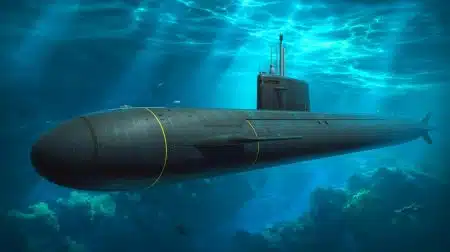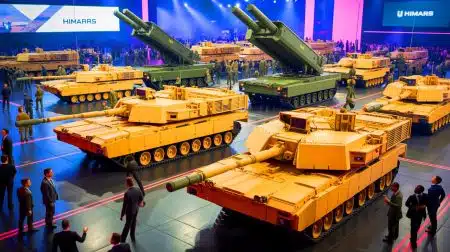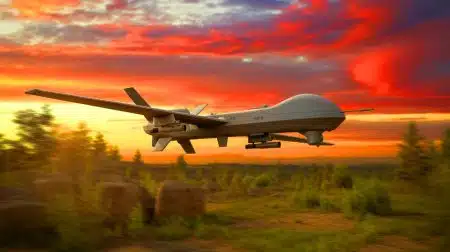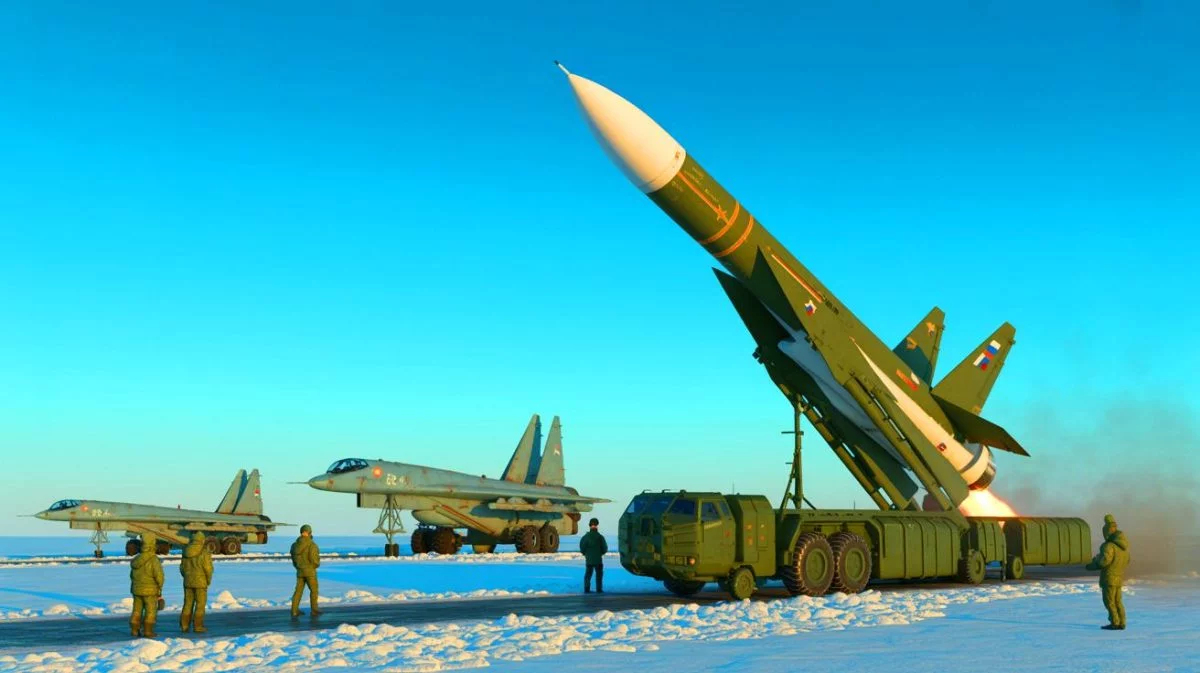| IN A NUTSHELL |
|
In recent weeks, the Arctic region has become a focal point of international attention due to a significant military buildup by Russia on Novaya Zemlya. This development has sparked concerns about potential missile testing, particularly of the nuclear-powered Burevestnik cruise missile, known for its “unlimited” range. The Barents Observer has reported increased military aviation activity, including the deployment of specialized aircraft to the Rogachevo air base. These actions suggest preparations for a significant military operation, raising questions about Moscow’s intentions and the potential geopolitical ramifications.
Russia’s Military Maneuvers in the Arctic
The recent deployment of military assets in the Arctic has been notable for its scale and specificity. Over the first three weeks of August, Russia has positioned a range of aircraft at the Rogachevo air base on Novaya Zemlya. Notably, a Beriev A-50U airborne early warning and control aircraft was sent to the region, a rare occurrence since the invasion of Ukraine in 2022.
This aircraft, as Lars Peder Haga, an expert on Russian military aviation, explained, may serve multiple purposes during potential missile tests. It could measure the missile’s flight or coordinate flight operations. The presence of additional aircraft, including transport planes and multi-role fighters, further indicates a coordinated effort.
Moreover, the involvement of two Il-976 SKIP aircraft linked to Rosatom highlights the seriousness of the operation. These planes are specifically designed for monitoring nuclear missile tests, suggesting that any forthcoming tests would involve complex coordination and heightened alertness.
The Burevestnik Missile: A Troubled History
The Burevestnik missile, despite its ambitious claims of “unlimited” range, has faced several setbacks. Past tests have been marred by accidents, including a significant incident in 2019 when an explosion during the recovery of a reactor unit resulted in casualties and radiation spikes. This has led to skepticism about the missile’s reliability and safety.
Nevertheless, Russian President Vladimir Putin continues to champion the missile as a breakthrough in military technology, asserting its unmatched capabilities. During a recent visit to Sarov, a hub for Russia’s nuclear research, Putin received updates on the missile’s status, indicating ongoing interest and investment in its development.
Warnings have been issued to civilians and maritime traffic in the region, with Notices to Airmen and maritime advisories highlighting the potential dangers of the upcoming tests. The presence of nine vessels within the exclusion zone underscores the logistical efforts supporting these activities.
International Concerns and Risks
The potential testing of the Burevestnik missile has raised alarms among Western intelligence agencies, including Norway’s NIS. These entities have voiced concerns about the environmental and geopolitical risks associated with such tests, particularly in the sensitive Arctic ecosystem.
Historically, the Arctic has been a region of strategic interest and environmental concern. The possibility of radioactive emissions from missile tests could have long-lasting impacts on the region’s fragile ecosystem. Such tests also risk escalating tensions with other nations, particularly those with vested interests in Arctic affairs.
As global powers continue to monitor the situation, the stakes are high. The outcome of these tests could influence future military strategies and international relations, especially between Russia and Western countries.
The Strategic Implications of Arctic Activities
Russia’s recent military activities in the Arctic are not only about testing new weapons but also about signaling its strategic intentions. The Arctic has long been considered a region of untapped potential, with its vast natural resources and strategic maritime routes becoming increasingly accessible due to climate change.
By bolstering its military presence in the Arctic, Russia aims to assert its influence and secure its interests in this geopolitically significant area. This move could prompt reactions from other Arctic nations, potentially leading to a new era of geopolitical competition in the region.
The international community will be closely watching how these developments unfold. The implications of Russia’s actions in the Arctic will likely reverberate beyond the immediate region, affecting global military and diplomatic dynamics.
As the Arctic becomes a new frontier for military and geopolitical maneuvering, the world must grapple with the potential consequences. How will Russia’s actions shape the future of this critical region, and what responses might they provoke from other global powers?
Did you like it? 4.2/5 (23)





